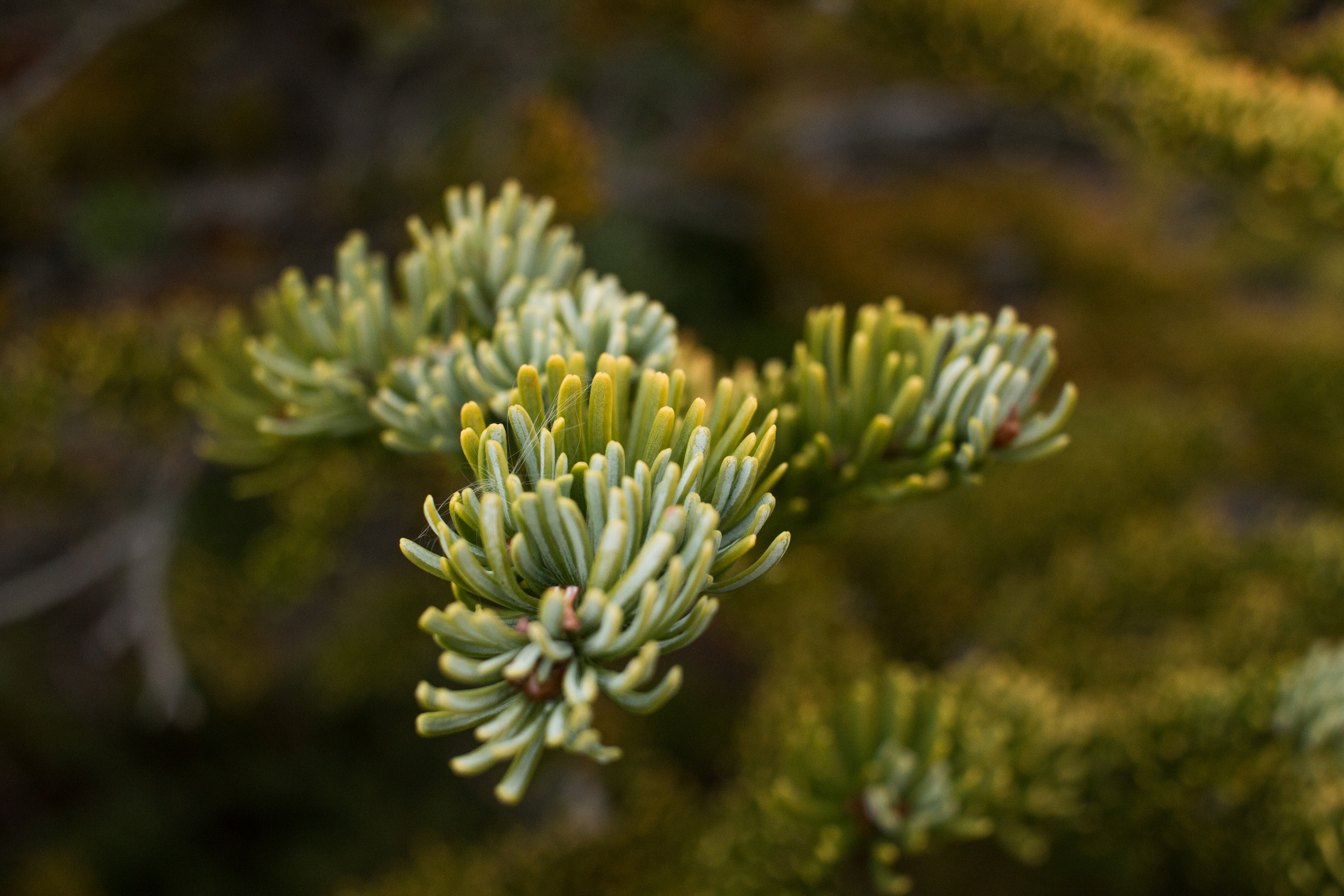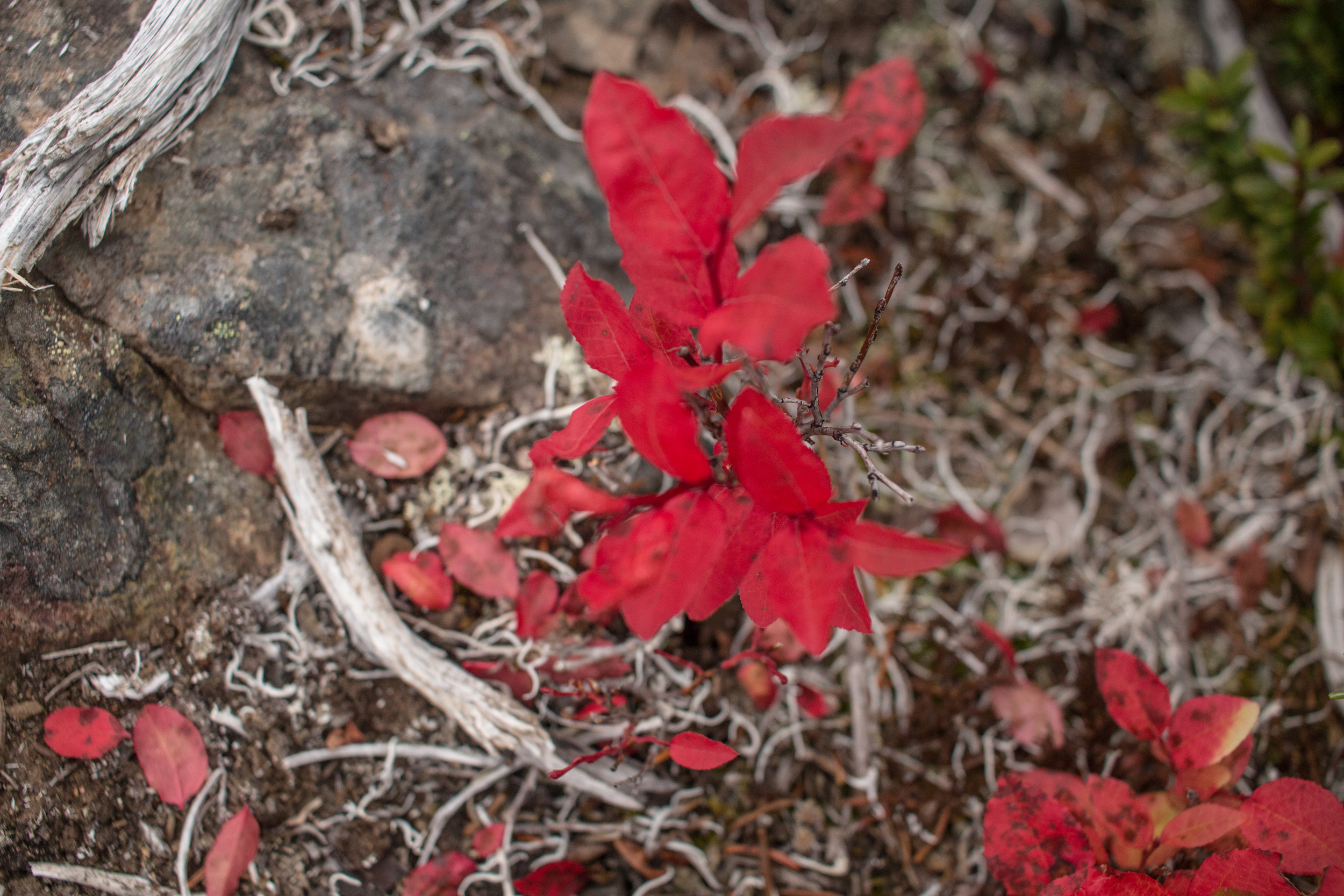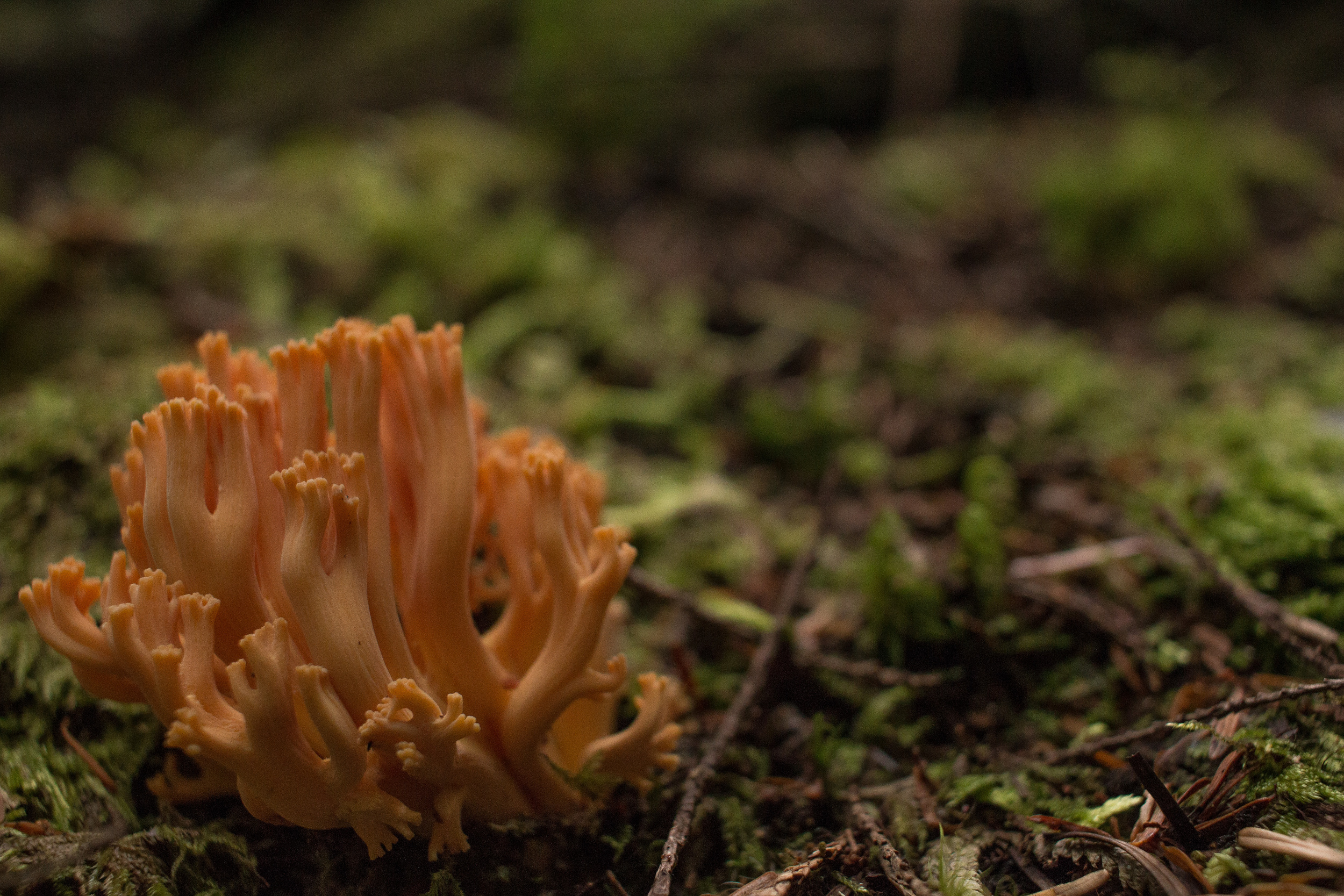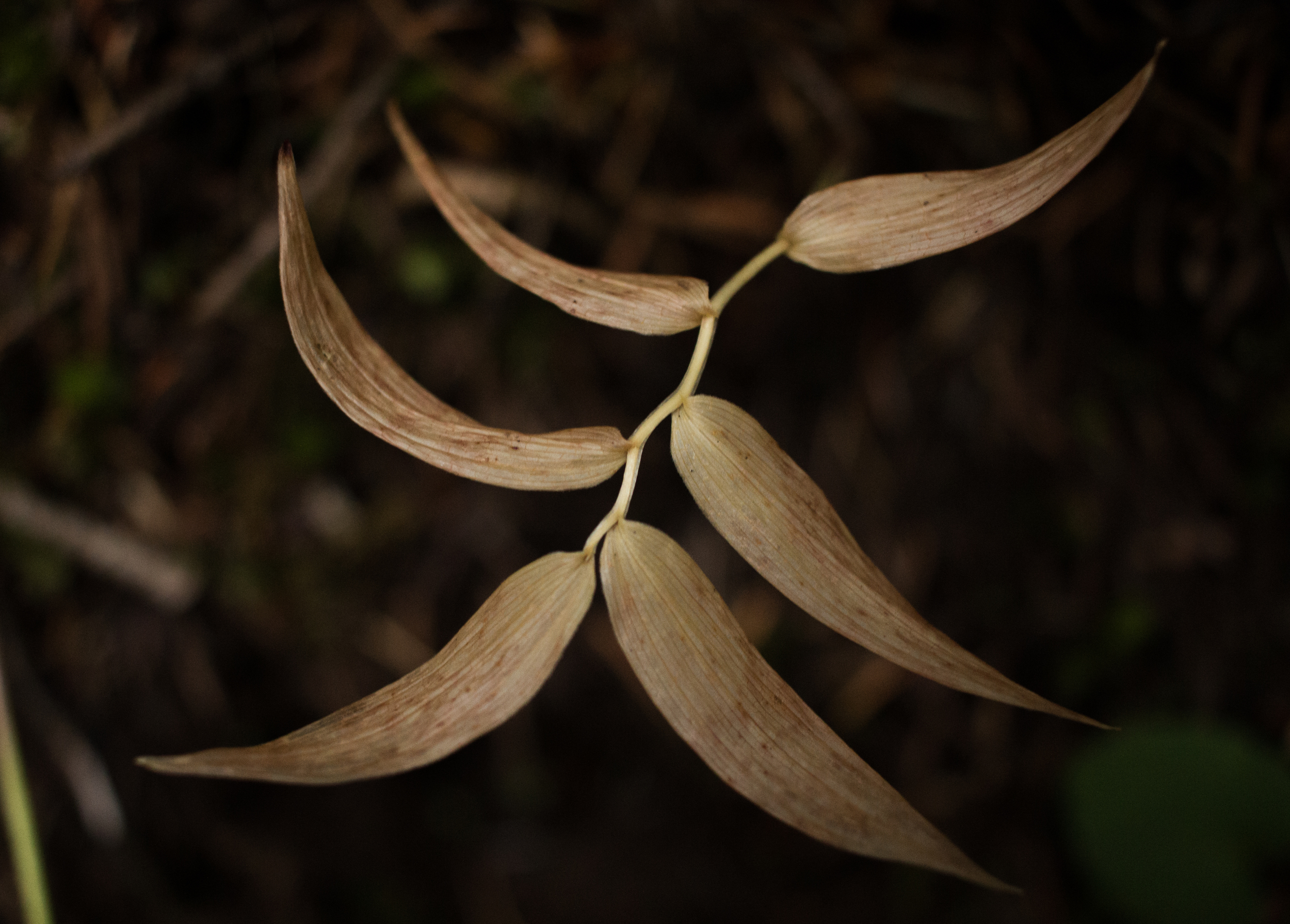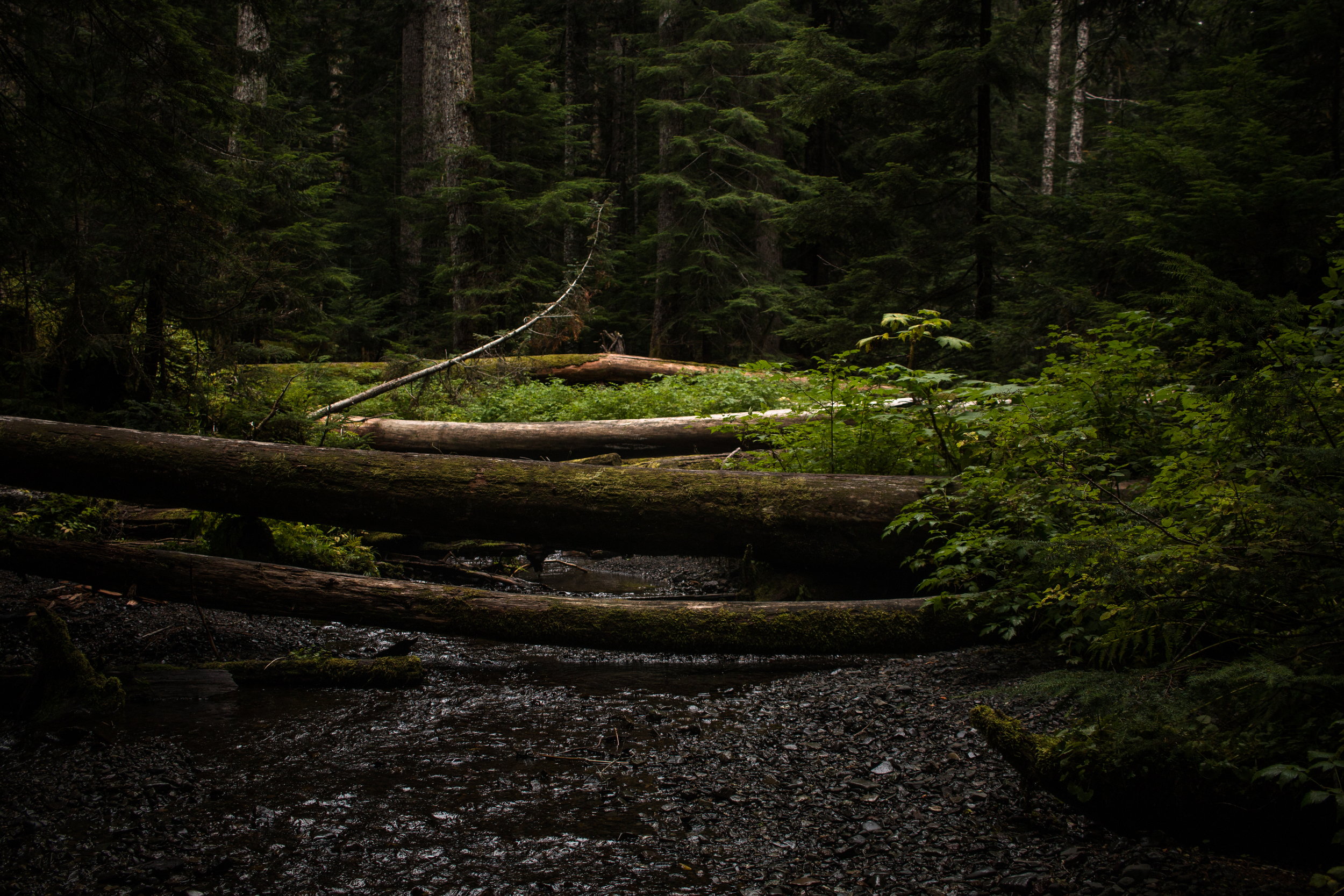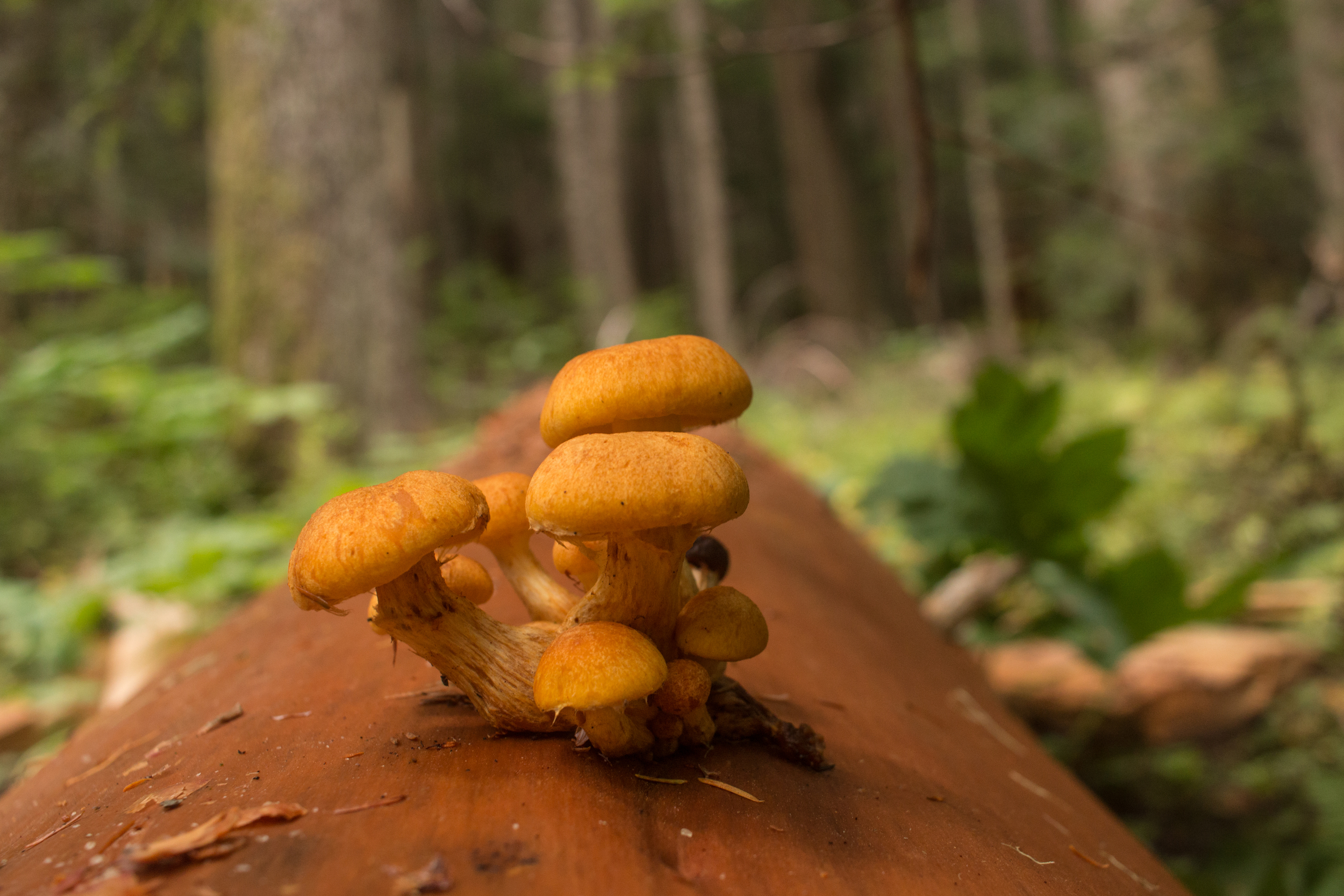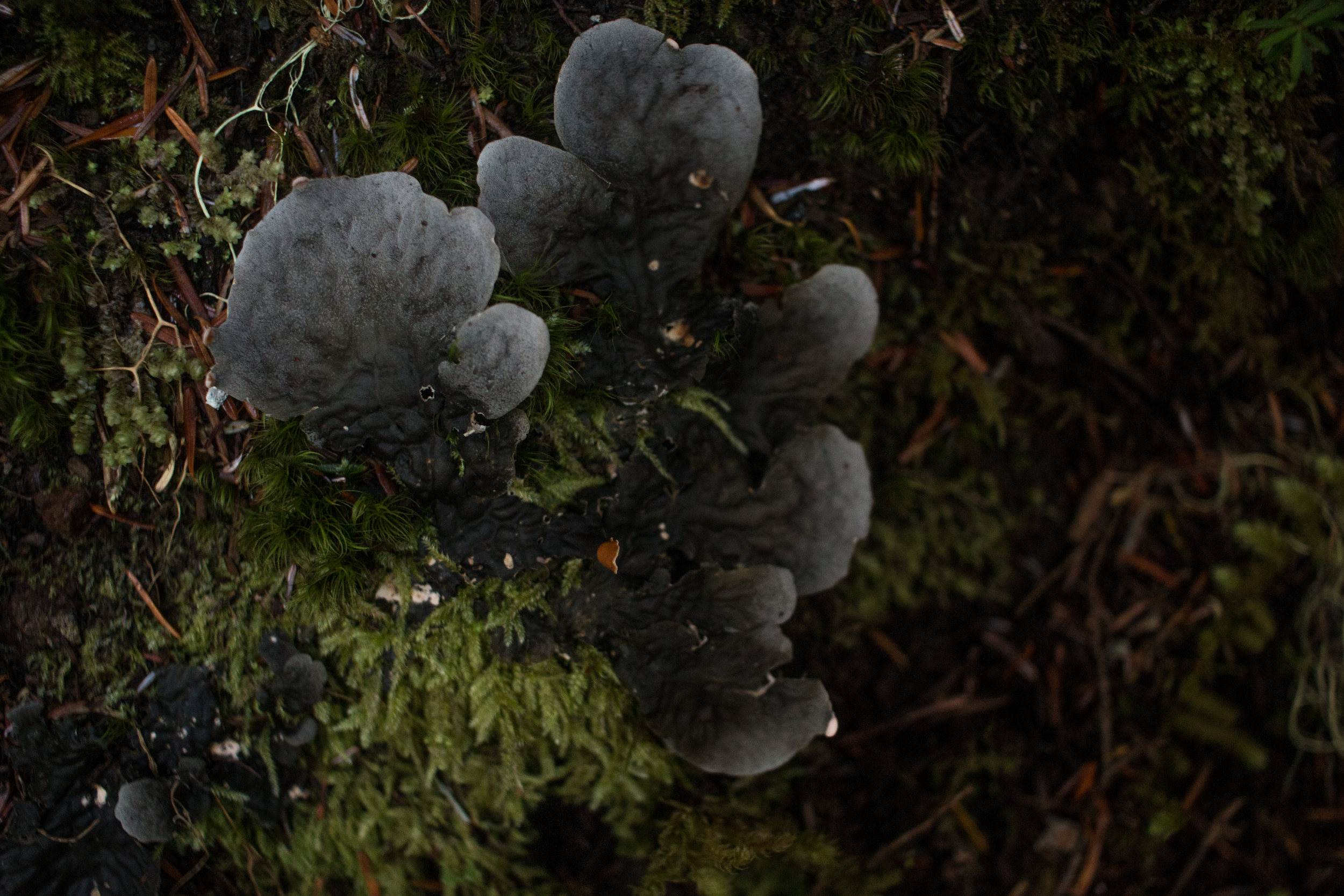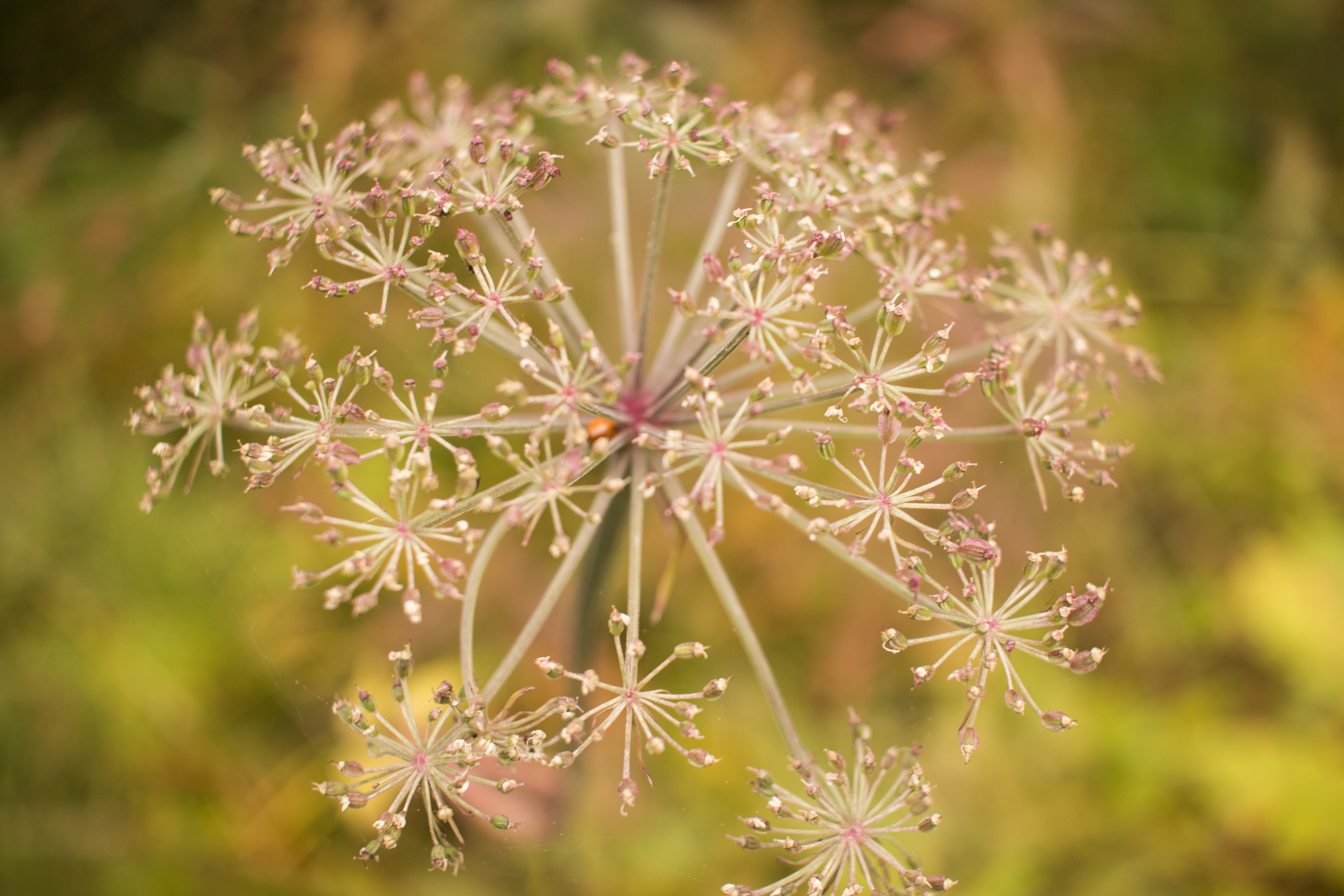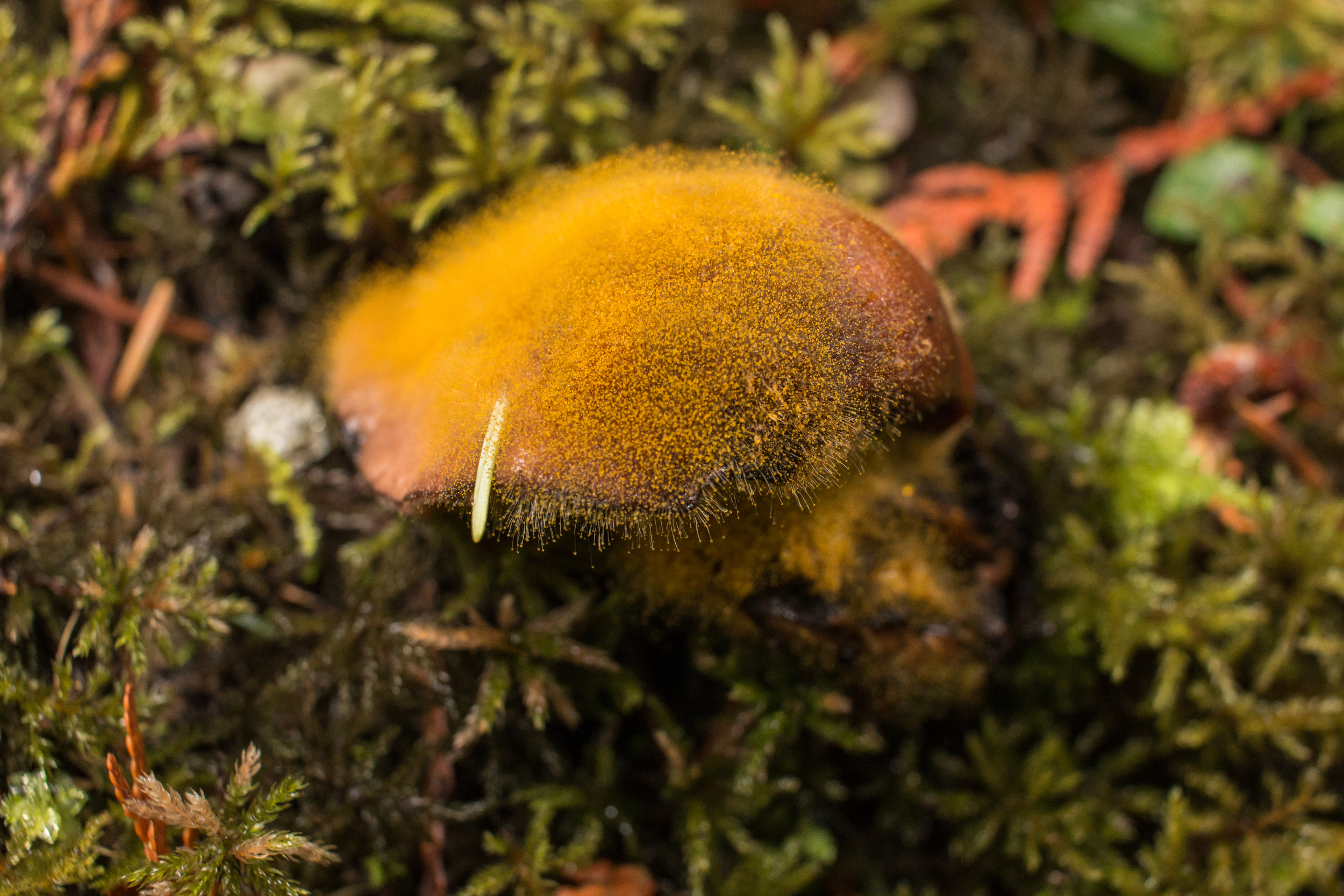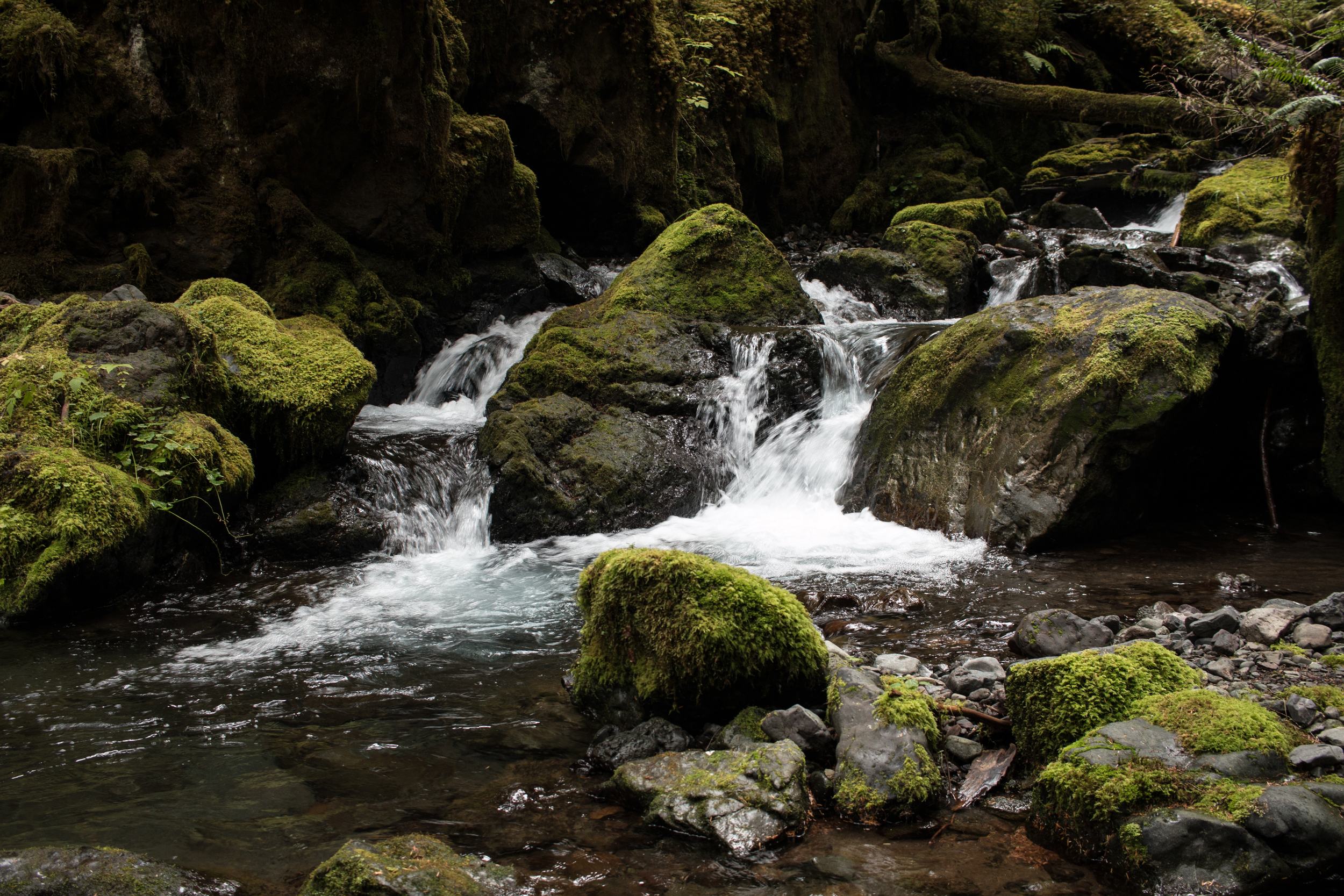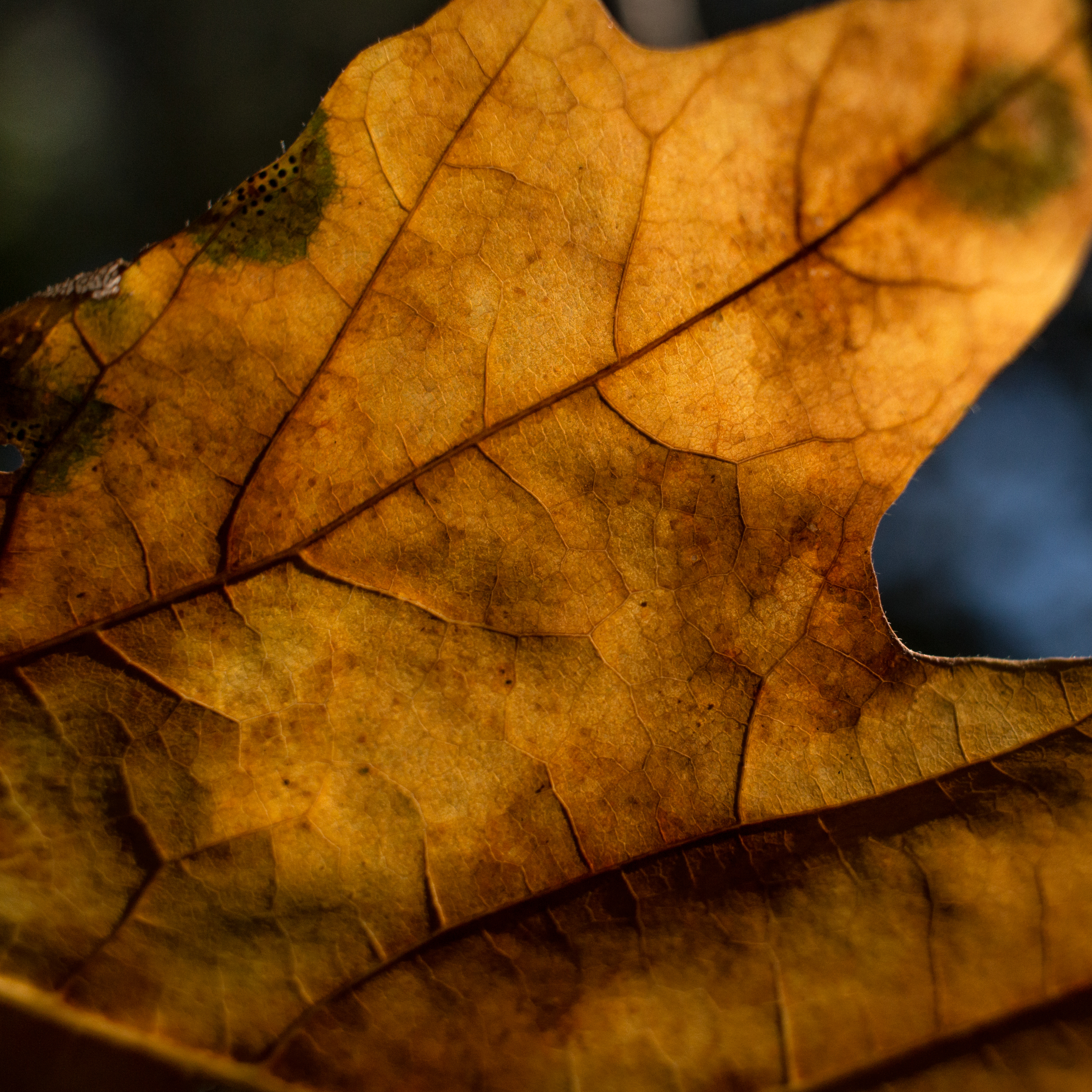For a full gallery of photos from the Olympic National Park, click here
I wrap my arms around the ridged outer bark of a Douglas Fir, barely circumnavigating a 1/3 of the giant. At this moment, in this place, I am a tree hugger; engrossed with the silence of the forest, the breadth of the life, the age of the residents. The fungus and mushrooms at my feet may not be older than a few days or perhaps a few hours. While this tree has towered for hundreds of years, they feed off each other, working in a harmony 'synergy workshops' can only hope to achieve. Two things hit me very quickly when I entered the Olympic National Park. First, this place is part of me, part of my home. Second, this place, and all things wild, fall into balance. Not the balance we use to tight rope walk, but a fundamental motion that drives every ecosystem. Nothing is forced here, nothing is lost here. The fallen logs are not dead; they feed hundreds of organisms after their great fall. Hollowed stumps give shelter to foxes and other little creatures. Moss grows on branches long separated from the tree, and ferns sprout out of just about everything else. Creaks dry up and give rise to temporary fields of shrubs, once again to be washed away when the waters of fall and winter return. Nothing unused passed through, a calibre of balance humans have excluded ourselves from. Nothing in the forest is created that will not to be used by something else. To me, this is beauty in primary colors. The imperfect mechanisms of nature, of humans, is something to behold, not tarnish. The first hour of my hike took me less than a mile down the path. Instead, I was taken by the little details of all that was around me. Of the orchestra of light; of the portrait of the forest.
Growing up in Washington state for 20+ years, I took the place for granted. Especially where I grew up, nature is so abundant, it becomes the norm. Similar to a businessman taking the same straight streets of Broadway NY or my own walks across the hallowed buildings of Cambridge. The underlying problem is that the brain is too efficient. Like a river, it strives to take everything as easily as possible. Given time and repetition, to take everything for granted. To free up space for the more important things our ancestors had to deal with us: food, shelter, not dying. For the 21st century? It often leads to more harm than good. Yet I cannot help but see the canyon between Cambridge, New York, and the Olympics. Nature is always changing, humans often discourage change. Wild shifts to the needs of the environment. Our buildings aren’t made to change facades with the seasons, to shift with the weather and be affected by those around them. Walk done Main St, USA today and tomorrow it will be nearly identical. Permanence is a human idea, antithesis to all other components of the natural world. We create concrete, rustless materials, formed to last, not shift. While understandable and necessary part of industry, there is something deep within us that calls for change, that demands it. Take a walk in a truly wild place and tell me otherwise.
My curiosity was peaking, and I almost gave up making it to the mountain pass if it were not for some motivation given by a group of older gentlemen who pushed me along. As I started to leave the lush valley floor I noticed that fall that arrived. Bright reds and orange filled the hills to both sides of the path. Soon these leafs would fall and nourish the ground. Soon after the snow will come and cover the nutrients, only for spring to bring them back to life in another plant or in the stomach of a little critter. The New York Businessman see’s different people on his way to work, and I see tourists from different regions of the world in town, but fundamentally our environments are not flexible. The forest is different every year, every season, and so forth. By elevation, by climate, the flora and fauna have adapted, and by these variables they change. Birds migrate, bears hibernate, and spiders move indoors to terrify children. There is something in me that feels stagnant without occasional trips into the wild, that feels stone forming on the edges of my feet, a ballet without motion. Routines become colorless, everyday little problems weigh without perspective. Just one day out this space and I feel lighter, clear. Opening a door I forgot had closed. Maybe it’s a primal nutrient, or just a developed taste, but I can’t establish myself in place that doesn’t allow access to the wild. To the valleys which echo, to silence that surrounds, to wonder abound, to home.
